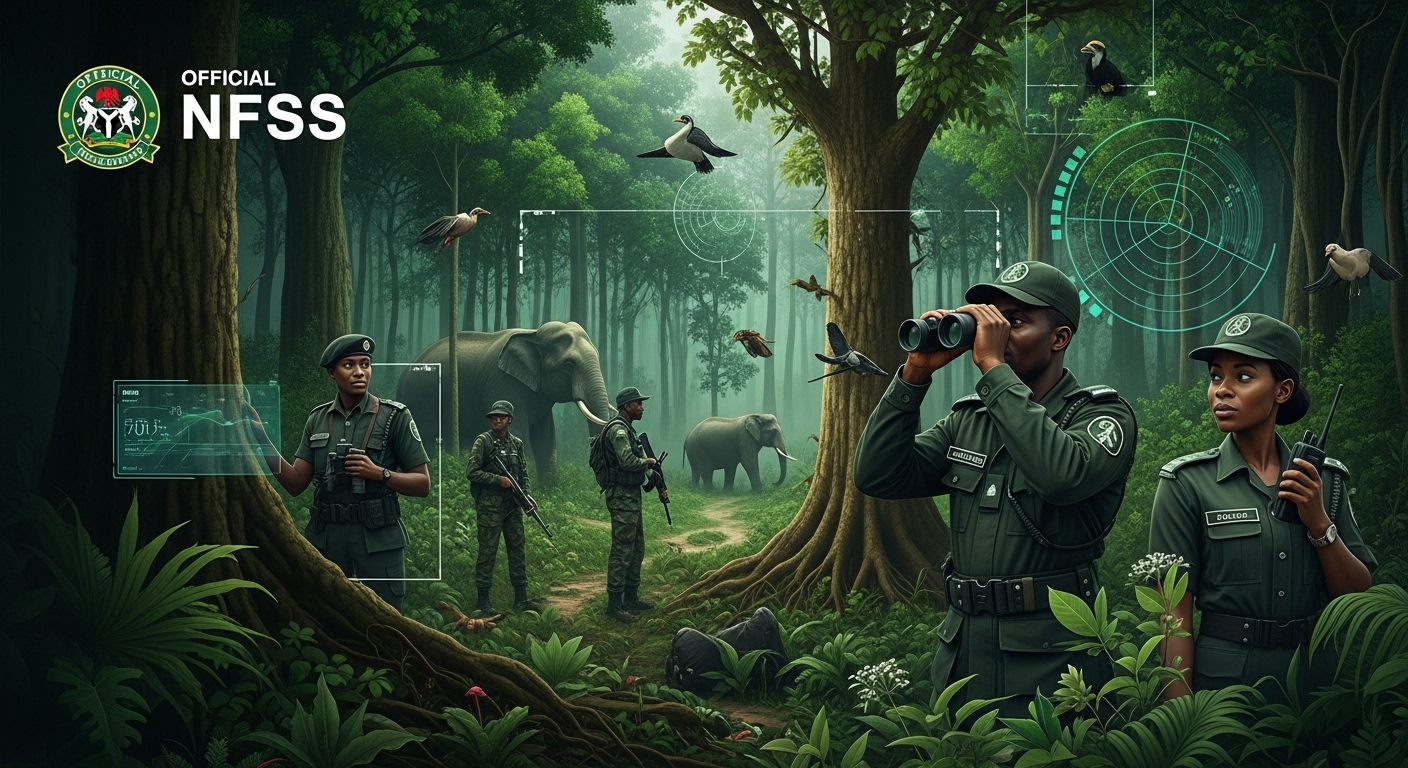Nigeria’s richly biodiverse forests are under increasing threat from a range of illegal activities, including logging, poaching, and agricultural encroachment. These activities not only decimate valuable ecosystems and contribute to climate change but also pose significant national security challenges.
The Nigerian Forest Service (NFSS), formerly known as the Nigerian Hunters and Forest Service (NHFSS), plays a vital role as a frontline agency in combating these multifaceted threats. Its personnel are often tasked with patrolling vast and challenging terrains, intercepting illegal operators, and enforcing forestry laws to protect Nigeria’s natural heritage and safeguard its national interests. The effectiveness of the NFSS is crucial for the sustainable management of Nigeria’s forests and the preservation of its biodiversity for future generations.
From Traditional Hunters to Modern Conservation Force
Officially renamed in late 2024, the NFSS transformed both title and purpose. The shift, announced by Commander-General Dr. Wole Joshua Osatimehin, aligns with a pending bill in the National Assembly to integrate traditional hunter groups into a unified forest security architecture.
This is more than a name change; it’s a blueprint for safeguarding Nigeria’s forests, wildlife, and natural resources. It’s about giving teeth to conservation efforts in regions where rangers alone can’t reach and where crimes against nature often go unchecked.
In an earlier article, we discussed the Ecological Significance of Trees and how trees are the lifeblood of ecosystems. We also wrote about Economic Trees and their role in livelihoods. What we’re seeing with the NFSS is the emergence of a structured, strategic initiative that could protect these very assets—our trees, biodiversity, and forest communities—from being lost to greed and violence.
Conservation and Security: Two Sides of the Same Coin
Dr. John Metchie, Deputy Commander-General (Intelligence) of the NFSS, emphasized this connection recently during the training of Intelligence, Surveillance, and Provost personnel in Abuja. He described forest guards as “the missing link” in Nigeria’s security framework, underscoring the unique role NFSS can play in bridging the gap between conventional security agencies and the rugged terrains of our forest landscapes.
“The forest guards possess credible and actionable intelligence that could help tackle insecurity in the forested regions,” he said. And when we talk about insecurity, we’re not just talking about kidnappers and bandits. We’re talking about illegal loggers decimating forests that took centuries to grow. We’re talking about poachers who eliminate rare species for black market profits. All of it is connected.
It’s a conservation issue. It’s a climate issue. And yes, it’s a human safety issue too.
Collaboration is Key
Support for the NFSS has been growing. Agencies such as the Nigeria Police Force (NPF), the National Drug Law Enforcement Agency (NDLEA), and the Nigeria Security and Civil Defence Corps (NSCDC) have thrown their weight behind the service, acknowledging that no single agency can secure Nigeria’s forests alone.
CP Ajao Adewale of the NPF highlighted the strategic value of intelligence sharing and collaboration. NDLEA Chairman, Brig. Gen. Buba Marwa (rtd) emphasized the importance of cooperation in tackling drug-related crimes, often linked to forest routes. And NSCDC’s Commandant Olusola Odumosun commended NFSS’s “doggedness and commitment” to national security.
In other words, Nigeria’s security architecture is slowly recognizing that true protection starts with those who know the land.
A Hopeful Future for Nigeria’s Forests
Commander-General Osatimehin’s vision for NFSS includes highly trained operatives working in sync with the military, police, and DSS. His recent initiative to train forest officers in intelligence and surveillance marks a turning point—one where we can truly begin to see forests not as lawless no-man’s-lands but as vital, monitored habitats deserving of protection.
If fully empowered, the NFSS could become a conservation game-changer—not only reducing insecurity but also preserving the integrity of Nigeria’s forests, its flora, and fauna. Imagine a network of trained forest guardians working side by side with communities, protecting ancient trees and rare species we wrote about—trees with deep ecological and economic value.
It’s time we saw forest protection not just as a green issue, but as a national one. And the Nigerian Forest Security Service may be the boots on the ground we’ve been waiting for.

















